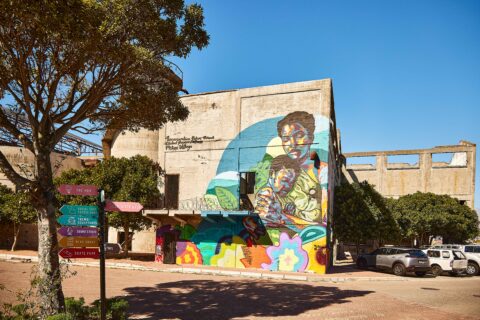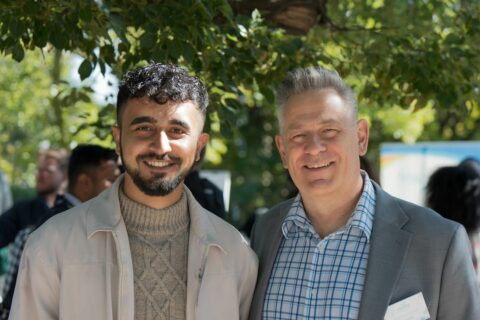Sunday Times Skills PR
Workforce Education: An Insider’s Perspective Over The Past 25 Years
By Jackie Carroll
But one thing that has remained constant since the dawn of democracy has been the steady and continued advances in the adult education and workplace training space. As Optimi Workplace, our Media Works offering is celebrating its 25th year as the leader in workforce education and training in South Africa.
This last quarter of a century has encouraged me to reflect on all the ways in which this space has evolved, and here is what I have learnt.
The early years: 1996 to 2000
When Optimi Workplace’s Media Works offering launched in 1996, the demographic we worked with was very specific. The learners completing our adult basic education and training (ABET) programmes were mostly Black men in their 40s who had previously had very little or no access to education. Very few women attended our courses because they still weren’t part of the formal employment sector.
I’ve always felt that the profile of our learners is indicative of the ways in which the right to education was being exercised. In those early years, the aftershocks of Apartheid were still being acutely felt.
Nevertheless, this was a pioneering time for our business. We were the first and only company providing computer-assisted training for adults. Armed with towers, monitors and floppy disks, we went to remote areas to train workers in the mining and agricultural sectors using what, at the time, was the latest technology. We knew that it was the only way we were going to make an impact while keeping quality consistent.
The arrival of SETAs: 2000 to 2010
At the start of the new millennium, the Sector Education and Training Authority (SETA) system started to gain momentum. SETAs prioritised adult education across various sectors and fundamentally changed the way we worked. We were invited to train up to 15,000 people at a time through our multimedia programmes, and developed a strong relationship with the AgriSETA in particular.
It was during this time that we started to translate our content. We made our ABET level 1 material available in all 11 official languages and also, through funding we received from the local government, in Braille and sign language. If anything defined this era, it was the government – in collaboration with the private sector – living up to providing education for all.
Towards the end of this decade, we also released Accelerate, our flagship product that was intended to fast track the ABET process for learners who had found it slow and poorly managed in the past.
As we became ever-more entrenched in providing workplace education and training, we became deeply familiar with the needs of our learners and their employers. Without realising it, we were paving the way for the formalised workplace content we produce under Optimi Workplace today.
Changing demographics: 2010 to 2020
The years 2010 to 2020 were all about developing and improving online learning and, ironically, our ability to make our online content available offline, too. While technology improved dramatically, we found that South Africans were hamstrung by the high cost of data, hence the demand for data-friendly and offline content.
By now, we were also noticing a massive shift in our learner demographics. Not only were our learners younger and more evenly balanced in terms of gender, they also had a stronger academic starting point. This meant that the basic education they were receiving at school was vastly superior to what it had been for learners during the apartheid years. The right to education, formally expressed in the Bill of Rights in 1997, was bearing fruit.
The future of workplace education: Today and beyond
In 2018, Media Works was acquired by the Optimi Group, and our decades of experience in adult and workplace education, and our passion for innovation, were distilled into a new division and entity called Optimi Workplace.
Optimi Workplace is home to Media Works, its workforce education and training offering, as well as Tuta-Me, which focuses on community education and training. Through Optimi Workplace, we’re providing better education to more adults than ever before. But this is also just one part of our greater focus on workplace training and development.
Covid-19 did not rescind the right to education, but it certainly complicated the ways in which it could be realised. Educators were forced to move learning online, which shone a spotlight on the pervasive inequalities in South Africa’s education system, but also opened up the space for stronger public-private partnerships. Through Tuta-Me, we’re making a real difference in the lives of students through online and mobile training programmes that provide tomorrow’s employers and employees with accessible, quality education.
Of course accessibility and quality remain the abiding education issues in South Africa. But, while there are certainly gaps to fill, the ways in which the educational sector is innovating is encouraging. Here’s to the next 25 years.
Jackie Carroll, the MD of Optimi Workplace, South Africa’s leading provider of workplace training and development for 25 years.
For more information, visit: https://www.mediaworks.co.za.






 Sign-up and receive the Business Media MAGS newsletter OR SA Mining newsletter straight to your inbox.
Sign-up and receive the Business Media MAGS newsletter OR SA Mining newsletter straight to your inbox.